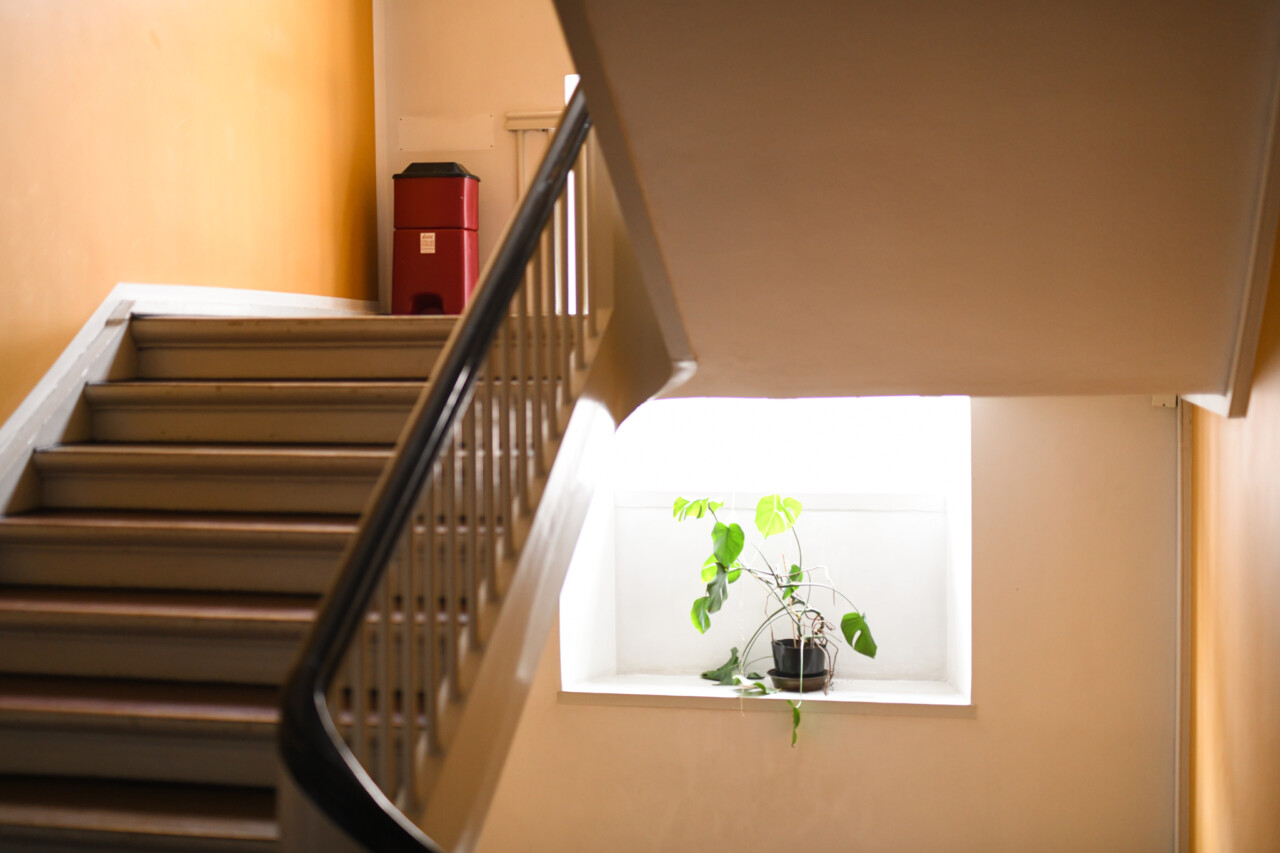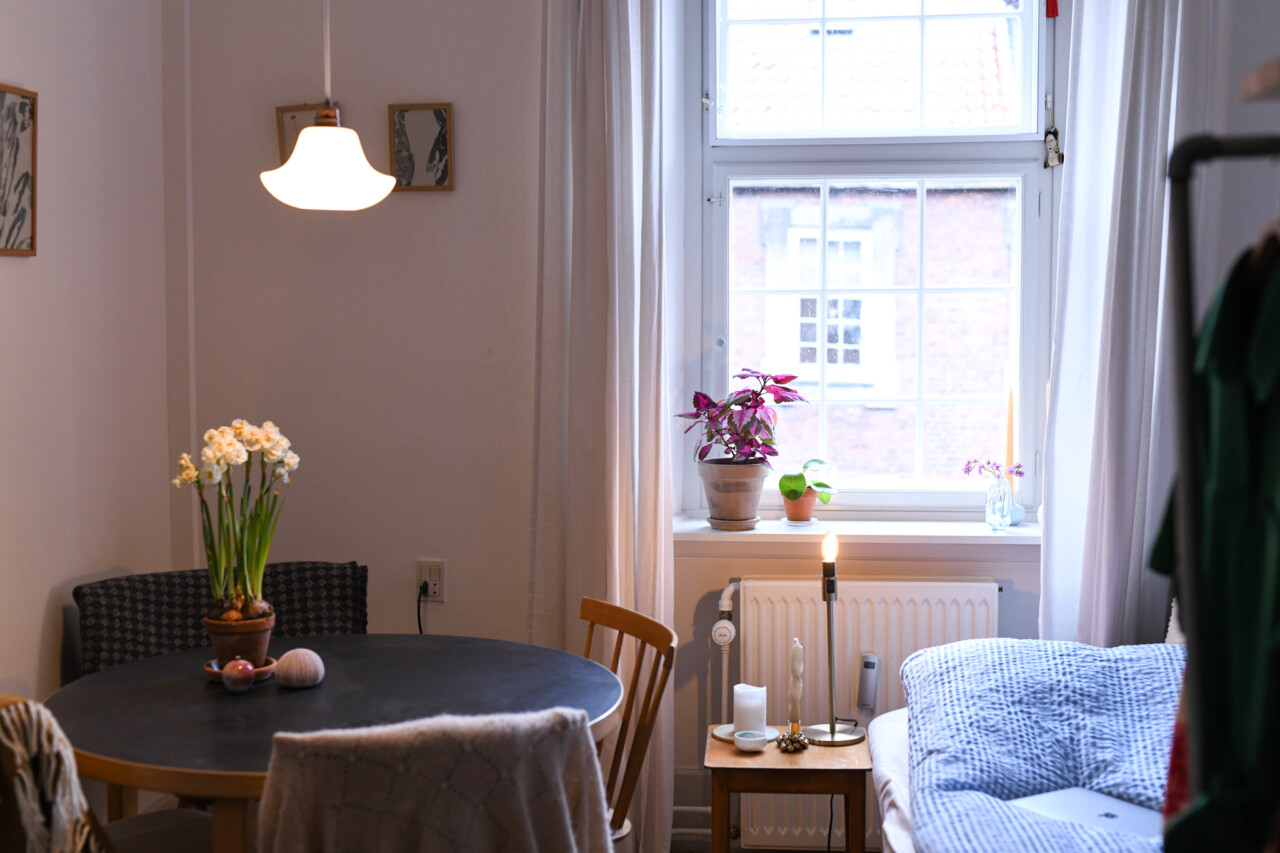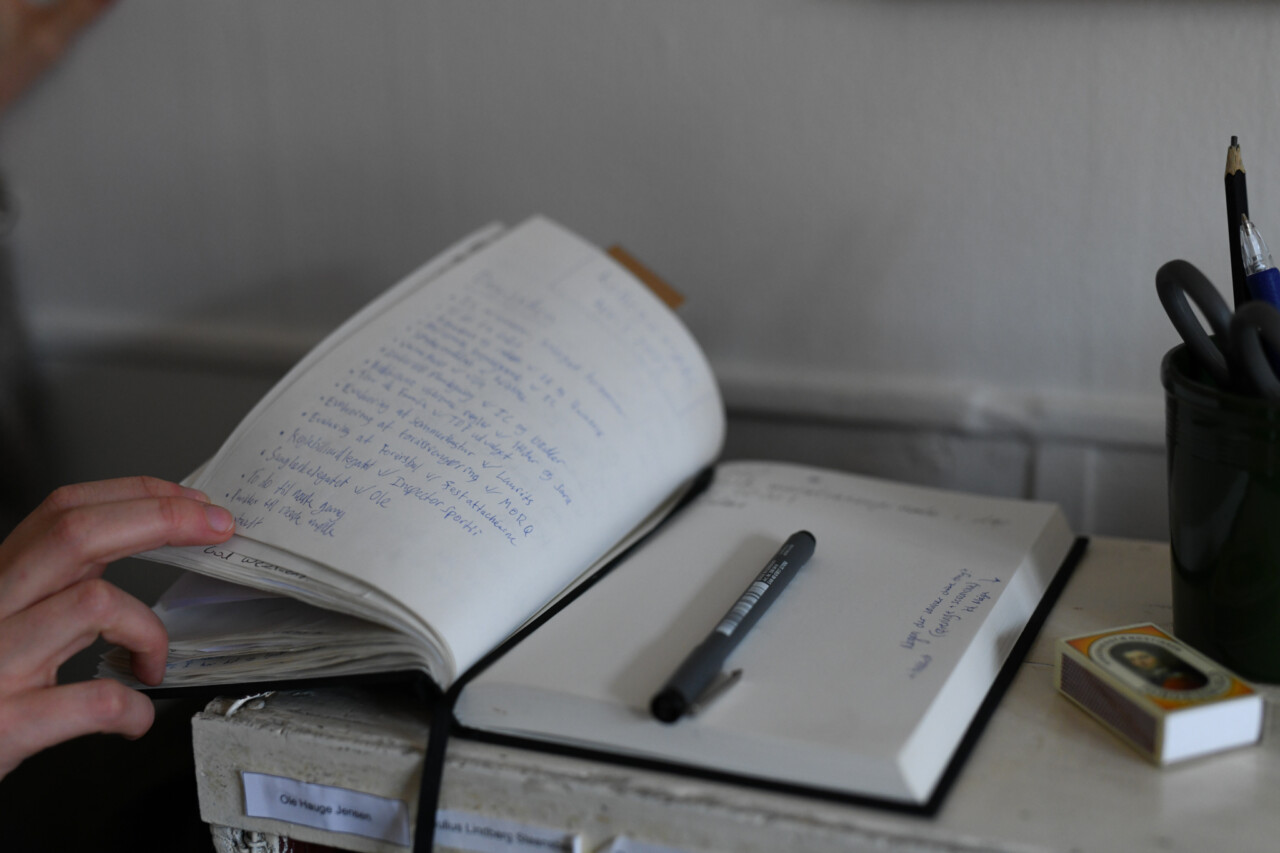Universitetsavisen
Nørregade 10
1165 København K
Tlf: 35 32 28 98 (mon-thurs)
E-mail: uni-avis@adm.ku.dk
—
Student life
Dorms disclosed — The Vartov Kollegiet dorm in the inner city is not that big. There is a strong community behind the walls of the red building. And the months pass via a series of permanent traditions which the residents take pride in.
When you walk through the bustle of tourists on the square in front of the city hall and down towards Regnbuepladsen square the crowds slowly thin out. On the corner of Farvergade street, your gaze is caught by a reddish brick building with bombastic gold lettering with the word ‘VARTOV’ above the gate. This is a student residence dorm. Not a big dorm, even though the building is. But a small, breathing space for fourteen students following different fields of study and different universities.
SEE THE FULL ‘DORMS DISCLOSED’ UNIVERSITY POST SERIES: Reviews by student residents of dorms and residence halls in Copenhagen
VARTOVKOLLEGIET
Address: Farvergade 27, 1463 Copenhagen.
Rent: The residence hall does not wish to have this published.
Application process: Motivated application when a vacant room is advertised.
Keep an eye out for vacant rooms via the Facebook page or website.
You don’t hear the noise from the city in here, but a low clutter of coffee cups being taken out of drawers in the kitchen, and a bit of laughter here and there from residents in adjoining rooms relaxing.
»We once had a party where someone wrote in our guestbook: ‘Thanks for the party. It was really great. See you around, you privileged bastards!’ I think they thought we really have a good time here at Vartov. That we live well and have a good community. We should feel lucky,« says Andreas Villadsen, who studies computer science at the University of Copenhagen. He has lived in the residence hall for a little over four years, and, of the three that welcome the University Post to the living room with steaming hot coffee, he is the resident that has lived here the longest.
»The residence hall was founded by the religious network Grundtvigsk Forum, which is also located here in the Vartov building, after World War II. It is not as old as many of the other inner city residence halls,« explains Andreas Villadsen.
Even though Vartov is a few hundred years younger than its residence hall neighbours, the place still has permanent traditions. The classic ‘food club’, for example, is held on all weekdays, and residents take turns to cook.
»This is both nice, and practical, because we have a really small kitchen that everybody shares, and you have to mingle around each other. That’s why it’s great when a person is in charge of the food,« says Signe Ulvsgaard Sørensen and laughs. She recently moved into the dormitory and is studying philosophy at the University of Copenhagen.
Dorms disclosed
There are loads of dormitories, kollegiums, and student residences in Copenhagen, yet most of the information available is in Danish.
Some are small, old houses with pretty gardens, others are giant concrete buildings with tiny windows.
This is a review by a student reporter. But in the Dorms Disclosed series, it is the residents themselves that review the dorms that they live in.
Here is an overview with links to all of the dormitory and student accommodation reviews we have published so far, written by the people who know them the best.
If you want to write an English-language review of your dorm write to uni-avis@adm.ku.dk with ‘Dorms Disclosed’ in the subject header.
»All traditions have a fixed place in the calendar, so that people can make time for it. In addition to the food clubs, we will be holding an annual summer house tour, a Christmas party, and friends’ parties, to name just a few of them,« says Sara Baun Schmidt. She is Vartov’s ‘Inspector Collegii’ – a resident who acts as chairperson for the place.
Sara Baun Schmidt is also the representative from the residence hall that sits in on the interviews when new residents are to be found.
»When we need to find a new resident, we really think they should want to participate in the community and social activities,« she says and continues: »We are only fourteen people living here, so sometimes it feels a bit more like a shared house than a dorm.«
The three residents come from three, very different, degree programmes and quickly agree that diversity is one of the strengths of the residence hall.
»We try to make sure that those who move in don’t know any of those who live here already,« says Sara Baun Schmidt, who is quickly supplemented by Andreas Villadsen:
»This means that we don’t have any predefined cliques here. There are almost never two residents who study in the same programme.«
Signe Ulvsgaard Sørensen explains that she had expected that there would be many humanities students among the residents, since Vartov is closely connected to Danish thinker Grundtvig. Grundtvig was pastor in Vartov church until his death in 1872, and in the beginning, only theologians lived here.
»But you don’t need to be a Christian or have gone to a [Danish traditional, ed.] folk high school to be admitted,« says Signe Ulvsgaard Sørensen.
»The only rules are that there must be seven women and seven men. You need to have studied at university for a year, be 21 or over, and have at least two years left of your study programme,« concludes Sara Baun Schmidt.


